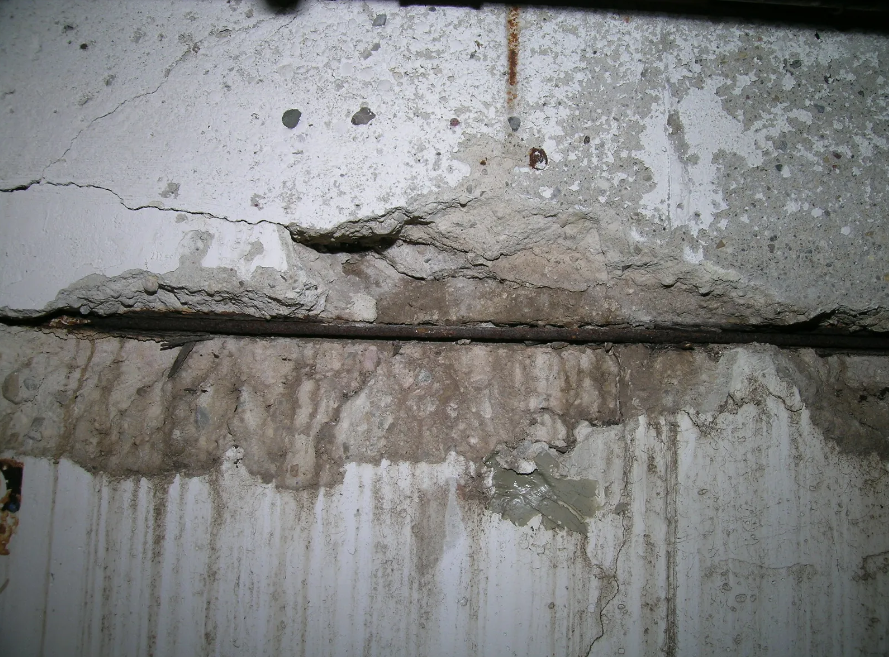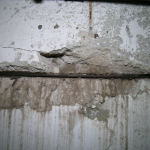Understanding and Addressing Horizontal Cracks in Basement Foundations
The foundation of your home serves as its literal backbone, providing stability and support to the entire structure. Any signs of compromise in the foundation, such as cracks, can be concerning for homeowners. Among the various types of foundation cracks, horizontal cracks in the basement foundation are particularly noteworthy. In this article, we will explore the causes, implications, and strategies for addressing horizontal cracks in basement foundations, aiming to provide homeowners with a comprehensive understanding of this issue.
Causes of Horizontal Cracks:
Hydrostatic Pressure:
Horizontal cracks often result from hydrostatic pressure, which occurs when water accumulates in the soil surrounding the foundation. The pressure exerted by this water can lead to the formation of horizontal cracks, especially in the lower sections of basement walls. This is a common issue in areas with high groundwater levels or heavy rainfall.
Expansive Soil:
Certain types of soil, known as expansive soils, can undergo significant changes in volume with variations in moisture content. When expansive soil becomes saturated, it expands, exerting lateral pressure on basement walls and contributing to the development of horizontal cracks.
Freeze-Thaw Cycles:
In colder climates, the freeze-thaw cycle can be a contributing factor to horizontal cracks. Water that seeps into existing cracks or porous areas of the foundation can freeze during cold temperatures, exerting force on the walls and causing them to crack horizontally.
Poor Construction Practices:
In some cases, horizontal cracks may be the result of poor construction practices. Insufficient reinforcing steel, inadequate concrete mix, or improper curing can weaken the structural integrity of the foundation, making it more susceptible to cracking.
Implications of Horizontal Cracks:
Structural Instability:
Horizontal cracks in basement foundations are particularly concerning because they often indicate structural instability. Unlike vertical cracks, which may be less severe, horizontal cracks can compromise the overall strength of the foundation and pose a significant risk to the integrity of the entire structure.
Water Infiltration:
Horizontal cracks can serve as direct pathways for water infiltration. This can lead to basement leaks, dampness, and the potential for mold growth. As water seeps through these cracks, it exacerbates the issue, contributing to further damage and compromising the habitability of the basement.
Sinking or Settling:
If left unaddressed, horizontal cracks can contribute to the sinking or settling of the foundation. This may result in uneven floors, misaligned doors and windows, and other structural problems that impact the overall stability of the home.
Compromised Aesthetics:
Beyond the structural concerns, horizontal cracks can also compromise the aesthetics of your home. Cracked and shifting foundation walls may manifest as visible distortions on the exterior or interior surfaces, diminishing the overall appearance and curb appeal of the property.
Addressing Horizontal Cracks:
Professional Structural Assessment:
The first step in addressing horizontal cracks is to enlist the expertise of a structural engineer or foundation specialist. These professionals can conduct a thorough assessment of the cracks, determine the underlying causes, and provide a detailed analysis of the extent of the damage.
Reinforcement with Carbon Fiber Strips:
Carbon fiber strips are a common method for reinforcing horizontal cracks in basement foundations. These strips are applied to the wall surface, creating a strong bond that helps resist the lateral forces causing the cracks. Carbon fiber reinforcement is a minimally invasive solution that provides structural support without the need for extensive excavation.
Epoxy Injection:
Epoxy injection is a technique used to fill and seal cracks in basement walls. This method involves injecting epoxy directly into the crack, bonding the surfaces together, and preventing further water infiltration. Epoxy injection is effective for both structural repair and preventing additional damage.
Wall Anchors or Tiebacks:
In cases where horizontal cracking is attributed to external pressure from expansive soil or hydrostatic pressure, wall anchors or tiebacks may be recommended. These devices anchor the foundation wall to more stable soil or rock beyond the problematic zone, providing lateral support and preventing further movement.
Waterproofing and Drainage Solutions:
To address the issue of water infiltration associated with horizontal cracks, waterproofing measures, and improved drainage systems are crucial. This may include the installation of interior or exterior drainage systems, sump pumps, and the application of waterproof coatings to basement walls.
Excavation and Reinforcement:
In more severe cases, especially where horizontal cracking is indicative of significant structural issues, excavation and reinforcement may be necessary. This involves exposing the foundation, repairing the cracks, and implementing additional structural support to ensure the stability of the entire foundation.
Preventative Measures:
Once the horizontal cracks are addressed, it’s essential to implement preventative measures to avoid future issues. Proper drainage, grading, and landscaping practices can help manage water around the foundation and reduce the risk of hydrostatic pressure causing further damage.
Horizontal cracks in basement foundations are not to be taken lightly. They serve as indicators of potential structural issues that, if left unaddressed, can lead to significant damage and compromise the integrity of your home. Seeking professional assessment and intervention is crucial to accurately diagnose the causes and determine the most effective solutions for your specific situation. Whether through carbon fiber reinforcement, epoxy injection, or more extensive measures like excavation and reinforcement, addressing horizontal cracks promptly is an investment in the long-term stability, safety, and health of your home.
Contact the Professionals at Everdry Waterproofing of Greater Grand Rapids Today! (800) 275-7910




















